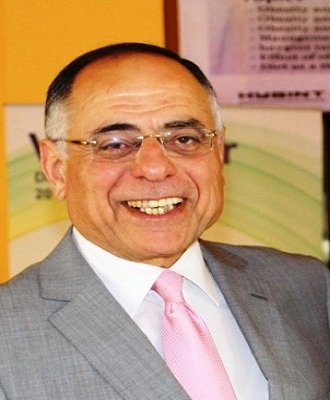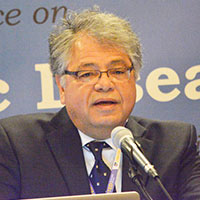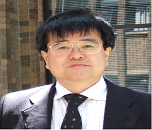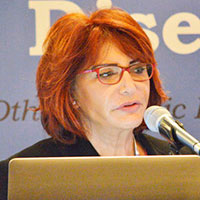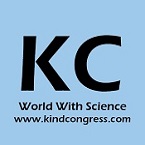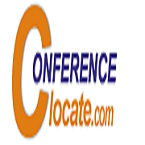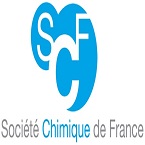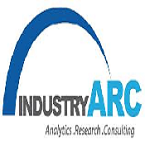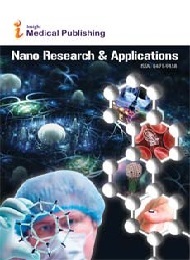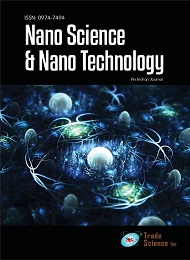Theme: "Nanomaterials and Nanomedicine: Synthesis, Characterization, and Applications"
Nanochemistry 2024
Welcome to the 4th International Conference on Nano Chemistry & Nano Medicine, scheduled to be held on June 06-07, 2024 in Chicago, USA. This esteemed conference is a gathering of eminent researchers, scholars, and practitioners from around the world, dedicated to exploring the ground breaking developments and applications in the fields of Nano Chemistry and Nano Medicine. Hosted by leading experts in the field, the conference offers a comprehensive platform to share knowledge, present cutting-edge research, and foster interdisciplinary collaborations. Engage in thought-provoking discussions on diverse topics, including nanomaterials synthesis, nano-bio interactions, personalized medicine, nanocatalysis, and more. Attendees will have the opportunity to connect with peers, exchange ideas, and stay abreast of the latest advancements in nanoscience, as well as its transformative potential in medicine and healthcare. With interactive workshops, poster presentations, and keynote lectures by luminaries in the field, the event promises to be intellectually stimulating and enlightening. Taking place in a vibrant location, this conference allows participants to experience a diverse cultural milieu while exploring the latest innovations in nanotechnology. Mark your calendars and register early to secure your place at this remarkable gathering. We look forward to welcoming you to the 4th International Conference on Nano Chemistry & Nano Medicine, where groundbreaking discoveries await. See you in 2024!
Track 1: Advances in Nanomaterials Synthesis and Characterization
Advances in Nanomaterials Synthesis and Characterization have revolutionized the landscape of modern science and technology. This dynamic field focuses on the development and characterization of nanomaterials with precise control over their properties, size, and structure. The ability to engineer nanomaterials at the atomic or molecular scale opens up exciting possibilities in various industries, including medicine, electronics, energy, and environmental remediation. Researchers and scientists are continuously exploring innovative synthesis techniques, such as bottom-up and top-down approaches, to create nanomaterials with unique functionalities tailored for specific applications. Concurrently, sophisticated characterization tools and techniques, such as transmission electron microscopy (TEM), scanning electron microscopy (SEM), and X-ray diffraction (XRD), allow in-depth analysis of nanomaterials' structure, composition, and morphology. This area of study fosters groundbreaking discoveries, enabling the design of nanomaterials with enhanced properties for more efficient drug delivery, improved catalysts, and cutting-edge electronic devices. The conference on Advances in Nanomaterials Synthesis and Characterization brings together experts from diverse backgrounds to discuss the latest advancements, challenges, and potential applications, fueling further progress in this rapidly evolving field.
Track 2: Nanoparticles for Drug Delivery: Targeting and Controlled Release
Nanoparticles for Drug Delivery: Targeting and Controlled Release have emerged as a revolutionary approach in modern medicine, offering the potential to revolutionize therapeutic interventions. These nanoscale carriers, composed of various materials, enable precise and targeted drug delivery to specific cells, tissues, or organs, maximizing therapeutic efficacy while minimizing off-target effects and toxicity. The field of Nanoparticles for Drug Delivery focuses on designing nanocarriers with tunable properties, such as size, surface charge, and surface functionalization, to achieve selective targeting and controlled release of therapeutic agents. This precision medicine approach holds promise for treating various diseases, including cancer, infectious diseases, and inflammatory disorders. By facilitating sustained and controlled release of drugs, nanoparticles overcome challenges associated with conventional drug formulations, optimizing drug dosing and patient compliance. Researchers and clinicians are continually exploring innovative strategies to enhance nanoparticle-based drug delivery systems, enabling customized treatments for individual patients and improving overall healthcare outcomes. The conference on Nanoparticles for Drug Delivery: Targeting and Controlled Release serves as a platform for knowledge exchange, fostering collaborations, and propelling advancements in this transformative field of nanomedicine.
Track 3: Nanomedicine for Cancer Therapy: Challenges and Opportunities
Nanomedicine for Cancer Therapy: Challenges and Opportunities represents a promising frontier in the battle against cancer, offering novel and targeted treatment strategies. This dynamic field explores the use of nanotechnology to design and deliver anticancer agents with enhanced precision, aiming to overcome the limitations of conventional therapies. The conference on Nanomedicine for Cancer Therapy brings together experts from various disciplines to address the challenges and opportunities in this rapidly evolving area. Challenges include the need for efficient drug delivery across biological barriers, potential toxicity concerns, and the development of drug resistance. Nevertheless, nanomedicine opens up exciting opportunities, such as personalized treatment regimens, combination therapies, and real-time monitoring of therapeutic response. In this context, innovative nanoparticle formulations, such as liposomes, polymeric nanoparticles, and dendrimers, offer the potential for site-specific drug delivery and controlled release, reducing side effects and improving therapeutic outcomes. This conference fosters knowledge exchange, collaborative efforts, and critical discussions, driving the translation of nanomedicine for cancer therapy from the lab to the clinic.
Track 4: Nanotechnology in Vaccine Development and Immunotherapy
Nanotechnology in Vaccine Development and Immunotherapy represents a groundbreaking approach to revolutionize preventive and therapeutic medicine. This interdisciplinary field explores the integration of nanotechnology into vaccine design and immunotherapy to enhance immune responses against infectious diseases and cancer. The conference on Nanotechnology in Vaccine Development and Immunotherapy gathers leading scientists, immunologists, and clinicians to discuss the latest advancements in this transformative area. Nanoparticle-based vaccine formulations enable targeted delivery of antigens, adjuvants, and immunomodulators, resulting in improved vaccine efficacy and immune memory. Moreover, nanocarriers play a crucial role in the development of personalized cancer vaccines and immunotherapeutic agents, such as checkpoint inhibitors and chimeric antigen receptor (CAR) T-cell therapies. By combining nanotechnology with immunotherapy, researchers aim to harness the body's immune system to combat diseases more effectively while minimizing adverse effects. This conference serves as a platform for knowledge sharing, collaboration, and exploring the immense potential of nanotechnology in shaping the future of vaccine development and immunotherapy for the betterment of global healthcare.
Track 5: Nano-Bio Interfaces: Interaction and Compatibility
Nano-Bio Interfaces: Interaction and Compatibility is a compelling area of research that examines the interface between nanomaterials and biological systems. This interdisciplinary field explores how nanoscale materials interact with biological entities and addresses questions regarding their biocompatibility, safety, and potential applications in medicine and other fields. The conference on Nano-Bio Interfaces delves into the fundamental understanding of the physicochemical interactions at the nanoscale, shedding light on the intricate mechanisms that govern these interfaces. Researchers and experts from diverse backgrounds converge to discuss the latest advancements in nanotoxicology, nanoparticle-cell interactions, and the impact of nanomaterials on biological processes. By comprehending the compatibility and potential toxicity of nanomaterials, we can design safer and more effective nanotechnology-based applications in drug delivery, diagnostics, and regenerative medicine. The conference fosters collaboration, networking, and critical discussions, leading to innovative solutions and responsible development of nanomaterials for the benefit of human health and the environment.
Track 6: Quantum Dots and Nanocrystals: Applications in Biomedicine
Quantum Dots and Nanocrystals: Applications in Biomedicine is a captivating field of research that explores the unique properties and applications of nanoscale semiconductor materials. Quantum dots and nanocrystals exhibit size-dependent optical and electronic properties, making them ideal candidates for a range of biomedical applications. This conference delves into the latest advancements in quantum dot and nanocrystal synthesis, surface engineering, and functionalization for targeted drug delivery, cellular imaging, and diagnostic purposes. These nanomaterials offer enhanced stability, high photostability, and tunable emission spectra, making them valuable tools for sensitive and multiplexed imaging of biological processes at the cellular and molecular levels. By harnessing the potential of quantum dots and nanocrystals, researchers aim to develop innovative nanoprobes, contrast agents, and theranostic platforms for precision medicine and early disease detection. This conference brings together experts from academia, industry, and healthcare to discuss challenges, exchange knowledge, and explore the immense potential of quantum dots and nanocrystals in advancing biomedicine and improving patient outcomes.
Track 7: Nanoscale Sensors and Diagnostics for Early Disease Detection
Nanoscale Sensors and Diagnostics for Early Disease Detection is an emerging and transformative area of research that holds immense promise for revolutionizing healthcare. This field focuses on the development of highly sensitive and specific nanoscale sensors and diagnostic platforms for the early detection of various diseases, including cancer, infectious diseases, and metabolic disorders. The conference on Nanoscale Sensors and Diagnostics gathers leading scientists, engineers, and medical professionals to share their latest research findings and innovations. Nanotechnology-based sensors offer unprecedented capabilities, enabling the detection of biomarkers and disease-related molecules at ultra-low concentrations. These nanosensors can facilitate point-of-care diagnostics, rapid screening, and real-time monitoring, paving the way for early interventions and personalized treatment approaches. Through this conference, participants collaborate to overcome challenges, such as sensor sensitivity, selectivity, and integration into clinical practice. By harnessing the power of nanotechnology, researchers aspire to bring about a paradigm shift in disease management, providing timely and precise diagnostic solutions to improve patient outcomes and public health.
Track 8: Nanozymes: Enzyme-Mimicking Nanomaterials in Medicine
Nanozymes: Enzyme-Mimicking Nanomaterials in Medicine is an exciting and rapidly growing field that explores the fascinating properties of nanomaterials with enzyme-like characteristics. These synthetic nanomaterials possess enzyme-like catalytic activities, offering remarkable potential for transformative applications in medicine and healthcare. The conference on Nanozymes delves into the latest advancements in the design, synthesis, and characterization of these enzyme-mimicking nanomaterials. Nanozymes have shown promise in various biomedical applications, including targeted drug delivery, antioxidant therapy, and biosensing. Their tunable catalytic properties and biocompatibility open new avenues for innovative therapeutics and diagnostics. By mimicking the functions of natural enzymes, nanozymes offer advantages over traditional enzymes, such as enhanced stability, easier storage, and lower costs. This conference serves as a platform for researchers, scientists, and clinicians to exchange knowledge, foster collaborations, and explore the potential of nanozymes to address complex medical challenges, paving the way for a new era in precision medicine and healthcare.
Track 9: Nanotechnology in Tissue Engineering and Regenerative Medicine
Nanotechnology in Tissue Engineering and Regenerative Medicine is a cutting-edge and transformative field that merges the principles of nanotechnology with tissue engineering to revolutionize regenerative medicine. This interdisciplinary domain focuses on developing nanomaterial-based scaffolds, biomimetic nanoparticles, and nanoscale drug delivery systems to enhance tissue regeneration and repair. The conference on Nanotechnology in Tissue Engineering and Regenerative Medicine brings together leading researchers, clinicians, and industry experts to explore the latest advancements in this field. Nanotechnology offers unprecedented control over biomaterial properties, allowing the design of scaffolds with tailored mechanical, structural, and bioactive properties to mimic the native extracellular matrix. By harnessing nanotechnology, scientists aim to develop innovative solutions for tissue repair, organ transplantation, and wound healing. Moreover, nanoscale drug delivery systems enable targeted delivery of growth factors and therapeutic agents, promoting tissue regeneration with enhanced precision and efficiency. This conference serves as a platform for knowledge sharing, networking, and collaborative efforts to advance regenerative medicine, addressing critical medical challenges and transforming patient care.
Track 10: Nanocarriers for Gene Delivery and Gene Editing
Nanocarriers for Gene Delivery and Gene Editing are at the forefront of gene therapy, holding tremendous potential to revolutionize the treatment of genetic disorders and other diseases at the molecular level. This rapidly evolving field explores the design and development of nanoscale carriers that can safely and efficiently deliver therapeutic genes or gene-editing tools to target cells and tissues. The conference on Nanocarriers for Gene Delivery and Gene Editing brings together experts from various disciplines to discuss the latest advancements in this transformative area. Nanocarriers, such as liposomes, polymeric nanoparticles, and viral vectors, enable precise and targeted delivery of genetic material, offering a promising alternative to conventional gene therapy methods. Moreover, nanocarriers enhance the delivery and expression of gene-editing technologies, such as CRISPR-Cas9, for precise and specific gene modifications. This conference fosters knowledge exchange, critical discussions, and collaborative efforts to accelerate the translation of nanocarrier-based gene therapies from the bench to the bedside, revolutionizing the landscape of modern medicine and personalized treatments.
Track 11: Nanotoxicology and Safety Assessment of Nanomedicine
Nanotoxicology and Safety Assessment of Nanomedicine is a pivotal area of research that addresses the potential risks and safety considerations associated with the use of nanomaterials in medicine. As nanomedicine gains momentum, understanding the interactions between nanomaterials and biological systems becomes imperative to ensure their safe and responsible development. This conference focuses on the latest advancements in nanotoxicology and safety assessment, aiming to elucidate the potential toxicity mechanisms, biocompatibility, and long-term effects of nanomedicine. Researchers and experts from diverse fields collaborate to develop robust safety evaluation strategies and predictive models for assessing the potential risks of nanomaterials. By comprehending the safety profile of nanomedicine, scientists can design and engineer nanocarriers and nanoparticles with improved biocompatibility and reduced adverse effects. This conference serves as a platform for knowledge exchange, critical discussions, and collaborative efforts to establish safe and effective guidelines for the clinical translation of nanomedicine, ensuring the delivery of safe and transformative nanotherapeutics to patients worldwide.
Track 12: Nanophotonics and Plasmonics in Biomedical Applications
Nanophotonics and Plasmonics in Biomedical Applications present a captivating frontier in biomedical research, harnessing the unique properties of light at the nanoscale to revolutionize diagnostics and therapies. This interdisciplinary field explores the interaction between light and nanoscale materials, such as plasmonic nanoparticles and photonic crystals, to develop novel solutions for biomedical challenges. The conference on Nanophotonics and Plasmonics gathers experts and researchers from diverse backgrounds to discuss the latest advancements in this transformative area. Nanophotonics enables ultra-sensitive and label-free biosensing, enhancing early disease detection and point-of-care diagnostics. Plasmonic nanoparticles, on the other hand, offer enhanced light-matter interactions, leading to improved photothermal therapies, targeted drug delivery, and precision imaging. By merging photonics and nanotechnology, scientists aim to unlock the full potential of light-based technologies in biomedicine, transforming the landscape of personalized medicine and patient care. This conference fosters knowledge exchange, critical discussions, and collaborative efforts, propelling nanophotonics and plasmonics towards practical biomedical applications with significant benefits for healthcare and beyond.
Track 13: Nanomaterials for Neural Interfaces and Brain Therapeutics
Nanomaterials for Neural Interfaces and Brain Therapeutics represent a groundbreaking area of research at the forefront of neuroscience and neuroengineering. This interdisciplinary field explores the use of nanotechnology to interface with the nervous system, enabling advancements in brain-machine interfaces, neural implants, and therapeutic interventions for neurological disorders. The conference on Nanomaterials for Neural Interfaces and Brain Therapeutics convenes leading scientists, engineers, and medical professionals to share the latest breakthroughs in this transformative domain. Nanomaterials, such as graphene, carbon nanotubes, and nanowires, offer unique properties that enable enhanced communication with neural tissues and improved biocompatibility. By harnessing nanomaterials, researchers aim to develop precise neural interfaces for deciphering brain signals, restoring sensory functions, and enhancing motor control. Additionally, nanotechnology-based drug delivery systems hold promise for targeted and controlled release of therapeutics in the brain, offering potential treatments for neurodegenerative diseases and brain injuries. This conference serves as a platform for knowledge exchange, collaborative efforts, and critical discussions, driving the advancement of nanomaterial-based neural interfaces and brain therapeutics to address complex neurological challenges and enhance the quality of life for individuals with neurological conditions.
Track 14: Nanotechnology for Infectious Disease Diagnosis and Treatment
Nanotechnology for Infectious Disease Diagnosis and Treatment is a transformative field that harnesses the power of nanoscale materials and devices to combat infectious diseases. This interdisciplinary domain explores innovative nanotechnology-based solutions for early and accurate diagnosis, as well as targeted and effective treatment of infectious agents. The conference on Nanotechnology for Infectious Disease Diagnosis and Treatment brings together leading researchers, clinicians, and industry experts to discuss the latest advancements in this vital area. Nanoscale biosensors, nanoprobes, and point-of-care diagnostic devices enable rapid and sensitive detection of pathogens, facilitating timely interventions and preventing disease spread. Moreover, nanotechnology-based drug delivery systems offer controlled and targeted release of antimicrobial agents, improving therapeutic efficacy while minimizing side effects and drug resistance. This conference serves as a platform for knowledge exchange, collaboration, and critical discussions to accelerate the translation of nanotechnology into practical solutions for infectious disease management, addressing global health challenges and improving patient outcomes worldwide.
Track 15: Nanoscale Imaging and Spectroscopy in Biomedical Research
Nanoscale Imaging and Spectroscopy in Biomedical Research is a cutting-edge and dynamic field that revolutionizes our understanding of biological processes at the nanoscale. This interdisciplinary domain combines advanced imaging techniques, such as atomic force microscopy (AFM), scanning tunneling microscopy (STM), and super-resolution microscopy, with spectroscopic methods to investigate biomolecular structures and interactions. The conference on Nanoscale Imaging and Spectroscopy in Biomedical Research gathers leading scientists, biophysicists, and biomedical researchers to discuss the latest advancements in this transformative area. Nanoscale imaging and spectroscopy allow visualization and analysis of cellular components, protein dynamics, and molecular interactions at unprecedented resolutions, unraveling crucial insights into disease mechanisms and drug responses. By bridging the gap between physics, chemistry, and biology, researchers aim to develop novel diagnostic tools, precision medicine approaches, and targeted therapies. This conference fosters knowledge exchange, critical discussions, and collaborative efforts to propel nanoscale imaging and spectroscopy towards advancements in biomedical research, ultimately benefiting human health and well-being.
Track 16: Green Nanotechnology: Sustainable Approaches in Nano Medicine
Green Nanotechnology: Sustainable Approaches in Nano Medicine is an emerging and vital field that integrates the principles of green chemistry and sustainable practices into nanomedicine. This interdisciplinary domain explores eco-friendly and biocompatible approaches to design and develop nanomaterials for medical applications, minimizing environmental impact and promoting responsible nanotechnology. The conference on Green Nanotechnology in Nano Medicine convenes researchers, scientists, and experts from various fields to discuss the latest advancements in this transformative area. Green nanotechnology emphasizes the use of non-toxic and renewable materials, as well as environmentally friendly synthesis and fabrication methods, for nanomedicine applications. By adopting sustainable approaches, researchers aim to create biodegradable nanocarriers, eco-friendly imaging agents, and green nanotherapeutics for improved patient care and public health. This conference serves as a platform for knowledge exchange, critical discussions, and collaborative efforts to drive green nanotechnology towards more sustainable and ethical practices in nano medicine, contributing to a greener and healthier future.
Track 17: Nanodevices for Point-of-Care Diagnostics and Wearable Health Monitoring
Nanodevices for Point-of-Care Diagnostics and Wearable Health Monitoring are revolutionizing the landscape of healthcare, providing real-time and personalized health information at the point of need. This cutting-edge field harnesses the power of nanotechnology to create miniaturized devices and sensors that can be seamlessly integrated into wearable health monitoring systems and portable diagnostic platforms. The conference on Nanodevices for Point-of-Care Diagnostics and Wearable Health Monitoring brings together experts from diverse disciplines to discuss the latest advancements in this transformative area. Nanoscale sensors, biochips, and lab-on-a-chip devices offer rapid and sensitive detection of biomarkers, enabling early disease diagnosis and monitoring of chronic conditions. Wearable health monitoring devices equipped with nanodevices provide continuous health tracking, empowering individuals to take proactive measures to manage their health. This conference serves as a platform for knowledge exchange, critical discussions, and collaborative efforts to propel nanodevices into practical solutions for point-of-care diagnostics and wearable health monitoring, paving the way for accessible and efficient healthcare delivery.
Track 18: Nanoparticles for Photothermal and Photodynamic Therapy
Nanoparticles for Photothermal and Photodynamic Therapy represent a cutting-edge approach in cancer treatment and disease management. This interdisciplinary field explores the use of nanoscale materials to deliver localized photothermal and photodynamic therapies, which harness light energy to destroy cancer cells and combat various diseases. The conference on Nanoparticles for Photothermal and Photodynamic Therapy brings together leading researchers, oncologists, and medical professionals to discuss the latest advancements in this transformative area. Nanoparticles, such as gold nanorods and carbon nanotubes, possess unique optical properties that allow them to convert light into heat or produce reactive oxygen species, leading to targeted destruction of cancer cells and infected tissues. By combining nanotechnology with light-based therapies, researchers aim to achieve precision medicine, minimizing damage to healthy tissues while maximizing therapeutic outcomes. This conference serves as a platform for knowledge exchange, critical discussions, and collaborative efforts to propel nanoparticles for photothermal and photodynamic therapy into practical and effective treatments for cancer and other diseases, advancing the landscape of modern medicine.
Track 19: Nanotechnology in Stem Cell Engineering and Therapy
Nanotechnology in Stem Cell Engineering and Therapy is a cutting-edge field at the intersection of nanotechnology and regenerative medicine, with the potential to transform healthcare. This interdisciplinary domain explores how nanomaterials and nanoscale tools can be applied to manipulate stem cells for therapeutic purposes. The conference on Nanotechnology in Stem Cell Engineering and Therapy gathers leading scientists, researchers, and clinicians to discuss the latest advancements in this transformative area. Nanotechnology enables precise control over stem cell behavior, including proliferation, differentiation, and homing, enhancing their regenerative potential for tissue repair and organ regeneration. By harnessing nanotechnology, researchers aim to develop innovative strategies for stem cell delivery, tracking, and targeted therapy. Nanoscale scaffolds and nanocarriers facilitate the transplantation and survival of stem cells, promoting tissue repair and healing. This conference serves as a platform for knowledge exchange, collaboration, and critical discussions, propelling nanotechnology in stem cell engineering and therapy towards practical and personalized treatments, revolutionizing the field of regenerative medicine.
Track 20: Emerging Trends in Nano Chemistry and Nano Medicine
Emerging Trends in Nano Chemistry and Nano Medicine showcase the latest frontiers in these rapidly evolving fields, offering new insights and opportunities for transformative research and applications. This interdisciplinary conference gathers leading scientists, researchers, and practitioners to discuss cutting-edge advancements and innovations that shape the future of nanoscience and medicine. Topics include novel nanomaterials synthesis techniques, quantum effects in nanoscale systems, and advancements in nanotechnology-enabled drug delivery systems. Additionally, the conference explores the integration of nanotechnology with regenerative medicine, personalized healthcare, and disease diagnosis. By fostering knowledge exchange and collaboration, the conference facilitates the identification of novel research directions, addressing complex challenges in both disciplines. The gathering of diverse perspectives ensures cross-disciplinary learning, fostering the convergence of nanochemistry and nanomedicine for groundbreaking discoveries that have the potential to revolutionize healthcare and improve the quality of life.
Nanochemistry Market is expected to reach $16.92 Billion by 2029 from $11.81 Billion in 2021 at a CAGR of 4.6 %. Nanochemistry is a field of medicine that deals with the medical treatment of nanoparticles, materials and nanochemical. Region/country wise Nanotechnology market report is available at Nanochemistry 2024.
With a compound annual growth rate (CAGR) of 10.2%, the Nano Medicine care devices market increased from $52.98 billion in 2021 to $58.37 billion in 2022. At least temporarily, the Russia-Ukraine conflict hampered the possibilities of a COVID-19 pandemic-related global economic rebound. Economic sanctions on several nations, a rise in commodity prices, and disruptions in the supply chain due to the conflict between these two nations have all impacted numerous markets around the world. At a CAGR of 5.8%, the market for Nano Medicine devices is anticipated to reach $73.09 billion in 2026.
Nanochemistry is doing very well abroad in countries, for example, USA, UK, Singapore, Germany, and China and so on as far as R&D. There has been huge improvement towards the use of Nanochemistry in science, nourishment, and materials. Nano prescription is still in the R&D organized and boundless development is yet not out of the ordinary and concentrated research is being directed in very fast speed.
Impotance & Scope :
The U.S Forms The Largest Market For The Nanochemistry Owing To Large Application Use Of Nanotubes In Various Industries. Electrical And Electronics, Pharmaceutical, And Chemical Products Are The Major Application Segments In North America Market. Europe Also Held A Significant Market Share In The Nanochemistry Market. Decrease In Price Of Nanochemistry Due To Increase In Mass Production Has Lead To Robust Growth Of Nanochemistry In These Regions Asia Pacific Is Expected To Witness Remarkable Growth In The Projected Period. Increasing Government Funding And Support, Rising Environmental Consciousness, And Rising Demand For Specialty Materials Is Expected To Boost The Growth Of Nanomaterials Market In The Foreseeable Period. Nanochemistry Are Regulated Under REACH And CLP Regulation In The European Market While U.S FDA Regulates Nanochemistry For The American Market. Nanoscale Materials Engineering Will Have An Increasingly Important Impact On A Number Of Sectors, Including Biotechnology, Electronics, Energy, And Industrial Products Nano-Sized Ceramic Powder Market Is Likely To Grow With A Healthy Growth Rate Of About 10% Per Year In The Next Five Years.. MWNT Filled Polymers Are Successful Commercial Products In Automotive Applications. Nanocomposites Have Found Niche Applications Such As Automotive (Under The Hood And Exterior) And Beverage Packaging. More Companies Will Enter The Nanomaterials Market .At The Same Time, There Will Be Increasing Number Of Business Relations Such As Technology Licensing And Joint Marketing To Achieve Faster Commercialization Of The New Products. The Research And Development Funding For Nanotechnology And Nanochemistry Will Continue To Increase In This Decade. The Global Market For The Nanochemistry In The Year 2009 Was Around US $14,000, And The Global Investments Are To Be Increased 50% More By The Ending Of 2021.
Global Market in Nanochemistry:
The global nanotechnology market is analysed across various regions such as North America, Europe, Asia-Pacific, and LAMEA. The North America region held the largest revenue share in 2018, contributing to nearly one-third of the total market share. This region is projected to continue its highest position throughout the forecast period. However, the Asia Pacific region would grow at the highest CAGR of 12.80 % from 2015 to 2025. Based on application, the market is bifurcated into electronics, energy, chemical, aerospace & defense, healthcare, and others. The chemical segment held the major market share in 2018, accounting for nearly one-third of the total market share. This segment would continue its leadership position throughout the forecast period. Moreover, the energy segment would grow at the highest CAGR of 13.8% from 2018 to 2025.
Conference Highlights
- Advances in Nanomaterials Synthesis and Characterization
- Nanoparticles for Drug Delivery: Targeting and Controlled Release
- Nanomedicine for Cancer Therapy: Challenges and Opportunities
- Nanotechnology in Vaccine Development and Immunotherapy
- Nano-Bio Interfaces: Interaction and Compatibility
- Quantum Dots and Nanocrystals: Applications in Biomedicine
- Nanoscale Sensors and Diagnostics for Early Disease Detection
- Nanozymes: Enzyme-Mimicking Nanomaterials in Medicine
- Nanotechnology in Tissue Engineering and Regenerative Medicine
- Nanocarriers for Gene Delivery and Gene Editing
- Nanotoxicology and Safety Assessment of Nanomedicine
- Nanophotonics and Plasmonics in Biomedical Applications
- Nanomaterials for Neural Interfaces and Brain Therapeutics
- Nanotechnology for Infectious Disease Diagnosis and Treatment
- Nanoscale Imaging and Spectroscopy in Biomedical Research
- Green Nanotechnology: Sustainable Approaches in Nano Medicine
- Nanodevices for Point-of-Care Diagnostics and Wearable Health Monitoring
- Nanoparticles for Photothermal and Photodynamic Therapy
- Nanotechnology in Stem Cell Engineering and Therapy
- Emerging Trends in Nano Chemistry and Nano Medicine
To share your views and research, please click here to register for the Conference.
To Collaborate Scientific Professionals around the World
| Conference Date | June 06-07, 2024 | ||
| Sponsors & Exhibitors |
|
||
| Speaker Opportunity Closed | |||
| Poster Opportunity Closed | Click Here to View | ||
Useful Links
Special Issues
All accepted abstracts will be published in respective Our International Journals.
- Nano Science & Nano Technology: An Indian Journal
- Journal of Nanomaterials & Molecular Nanotechnology
- Nano Research and Applications
Abstracts will be provided with Digital Object Identifier by













